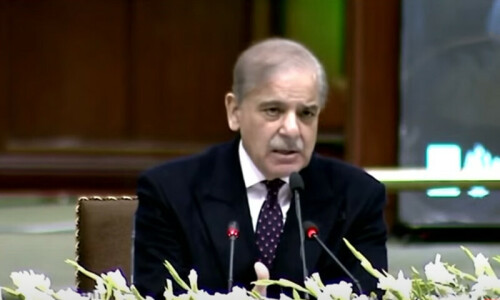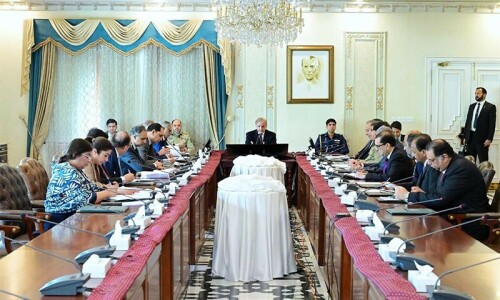MOSCOW/LONDON: Hopes are high that political pragmatism will hold together gas price deals between Russia and its former satellites, lifting the threat of supply cuts for the first new year since January 2005.
Moscow is particularly wary of a damaging rift with Ukraine, under newly-appointed Prime Minister Yulia Tymoshenko, ahead of Russian presidential elections in March and analysts predict any last-minute quibbling should be relatively minor.
“There is very little to gain ... from both sides if they are renegotiating,” said Igor Kurinnyy of ING in London.
“If she does nothing, it will look bad for Tymoshenko, so you might see something happening, but I do not expect significant changes to the gas price for Ukraine and I do not expect a repetition of the conflict that the previous Orange government had with Gazprom.”
Relations between Russia and Ukraine hit a low in 2005 during Tymoshenko’s previous brief premiership.In spite of her departure, a price dispute at the end of 2005 led to the halting of gas flows to Ukraine at the start of 2006, with a knock-on effect on European supplies.
Energy supplies were again interrupted at the beginning of 2007 following disagreement between Russia and Belarus, which led to the disruption of oil flows through Belarus.
The Druzhba, or Friendship, pipeline, through Ukraine and Belarus, supplies Europe with around one tenth of its oil, while 20 percent of Russia’s gas exports to Europe flow through Belarus. The remaining roughly 80 per cent pass through Ukraine.
While keen to assert its reborn national pride, Russia also needs to foster good relations with its major customer the European Union, which receives a quarter of its gas from Russia.
“Gazprom has been very pragmatic this year. It has done a lot to avoid conflicts following very negative reaction to its behaviour in previous years,” said energy analyst Valery Nesterov at Troika Dialog brokerage.
Even though some executives at gas monopoly Gazprom were told to cancel holidays as a precaution, an EU spokesman was confident any lingering talks this year would not be disruptive.
“We expect that whatever the solution is, it won’t affect supply to the EU,” an energy spokesman said.
A row could be particularly damaging to Dmitry Medvedev, President Vladimir Putin’s preferred candidate to succeed him, as he chairs the state-controlled board of Gazprom.
Russia, with justification, has been raising prices to its former satellites, who previously paid very little for their gas imports, to bring them gradually into line with market levels.
In previous years, negotiations continued to the 11th hour.
This year, Moscow hurried through an agreement with Ukraine early in December while outgoing Ukraine Prime Minister Viktor Yanukovich, seen as loyal to the Kremlin, was still in office.
Ukraine agreed to raise payments to Gazprom by 38 percent next year to $179.50, while Belarus has agreed on a 19 per cent increase to $119 per thousand cubic metres.
Belarus is paying less than any other of Russia’s customers, but Gazprom had made clear to Ukraine that prices would depend on how much it had to pay for gas imported from Central Asia, which is used to help supply Ukraine.
The last obstacle to unbroken supplies was removed on Thursday, analysts say, by Gazprom’s deal on import prices with Uzbekistan.
Since taking office, Tymoshenko has said gas will continue to flow to Europe, but that she wants talks on her long-held aim of eliminating all intermediaries in gas trade with Russia.
She has repeatedly criticised intermediary firm RosUkrEnergo as an opaque company that raises the cost of gas transit.
“My feeling is that Yulia Tymoshenko will not challenge the price deal, but may try to get rid of RosUkrEnergo, which wouldn’t be the biggest disaster,” said Jonathan Stern of the Oxford Institute for Energy Studies.
Even on issues she challenges, Tymoshenko may be patient.
“She will initiate gas talks, not about the 2008 price, but about the cost of transit. But this will be no earlier than at the end of winter when gas consumption goes down,” said Serhiy Lukyanchuk, an energy expert who has worked in the industry.“Ukraine’s gas transit system is loss-making with the current gas transit tariff,” he added.
—Reuters















































